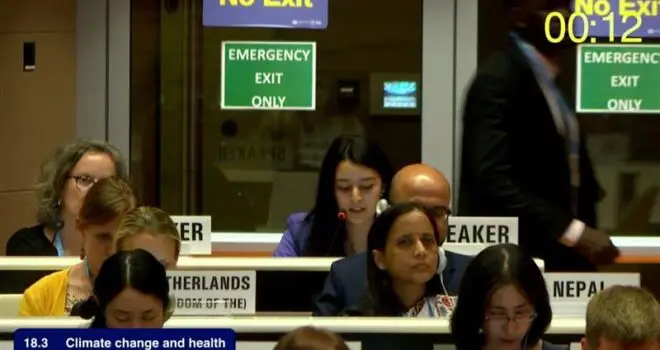From 30 November-11 December, countries met at the Paris UN Climate Conference (COP21) hoping to achieve an ambitious and universal agreement on climate change for the period after 2020. At the end of the Conference, the landmark Paris Agreement was adopted by 195 nations who agreed to control climate change and limit the global average temperature to a rise “well below” 2°C (3.6°F), compared to pre-industrial levels.
In the wake of this historic Agreement, the World Heart Federation is most concerned with the prioritization of the environment within the climate focus, in particular ambient and indoor air pollution, which is a leading risk factor for several non-communicable diseases (NCDs), especially cardiovascular disease (CVD) and lung disease.
We are dismayed that ambient and indoor air pollution has not been secured as an indicator for Agenda 2030 for sustainable development. Without measuring ambient and indoor air pollution, the world will struggle to track progress on both climate and health development.
Together with the World Health Organization (WHO) and several other health agencies, the World Heart Federation supports a proposed revised indicator for the Agenda 2030 targets on environment:
‘Mortality rate attributed to household and ambient air pollution’.
Measurement of household pollution is critical: the World Health Organization (WHO) attributed 4.3 million deaths to household air pollution in 2012, 600,000 more deaths than the 3.7 million deaths attributed to outdoor air pollution.
Nearly half of all deaths attributed to pneumonia, which is responsible for one fifth of the deaths of children younger than five (one million children in 2013), are the result of particulate matter inhaled from indoor air pollution, a consequence of the fires and solid fuel-burning cook stoves used inside homes by three billion people worldwide.
Indoor air pollution also captures secondhand smoke exposure from tobacco use, which according to some estimates contributes to up to 165,000 child and early adolescent (under-15) deaths per year. Globally, children are most likely to be exposed to secondhand smoke in homes and family vehicles.
The World Heart Federation, in partnership with WHO and other health agencies, will continue to advocate for air pollution reduction measures.


